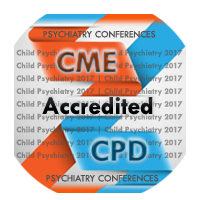Biography
Biography: Anusha Ranganatha
Abstract
As the geriatric population continues to grow, so does the number of elderly individuals with psychiatric conditions. In particular, late in life depression (LLD) is becoming an increasingly common diagnosis. The prevalence is already estimated at 10% of the community and 40% of individuals in hospitals or long term care facilities. Untreated LLD is associated with decreased physical, cognitive and social functioning as well as poor health status and increased total healthcare costs. Suicide rate, especially for elderly men with depression, is high. According to 2012 statistics from the centers for disease control and prevention, about 51 of every 100,000 white men aged 85 and older committed suicide, compared with the national average for all ages of 12.6. Given the negative impacts of unrecognized late in life depression, early intervention and treatment is essential. Since diagnosis and management of LLD can be challenging, this session will work to increase psychiatrists understanding of the unique aspects of LLD diagnosis and management. The goal of the session will be to review the unique set of symptoms associated with LLD. Patients with LLD are more likely to have prominent cognitive symptoms, depression with psychosis and somatic symptoms which can be the only presenting complaint. It is also important to consider the differential diagnosis for new onset depressive symptoms in the elderly–delirium, dementia, medical comorbidities and polypharmacy. LLD treatment is aimed at achieving improvement in the quality of life and can involve medications, therapy and other modalities including ECT.

